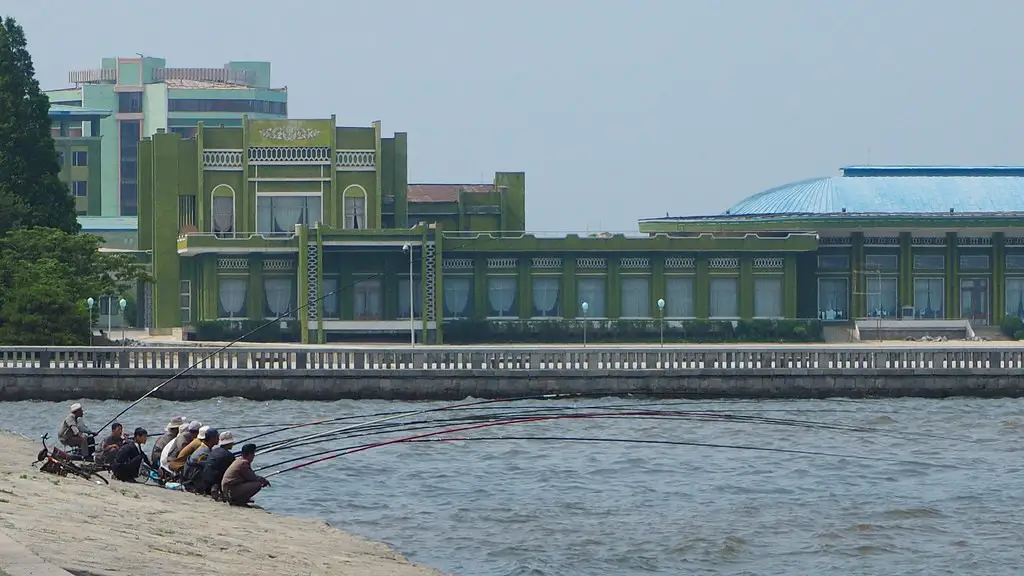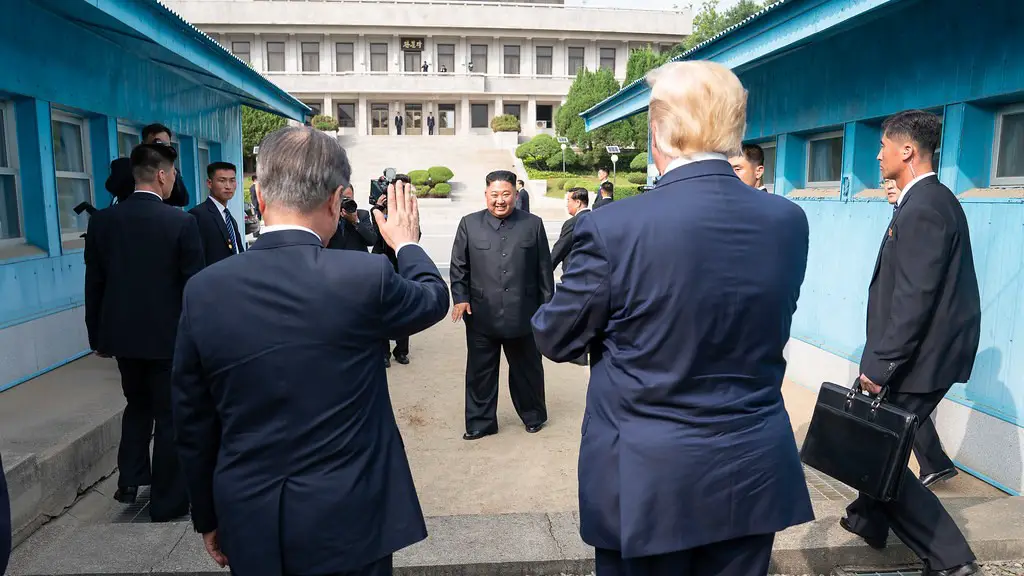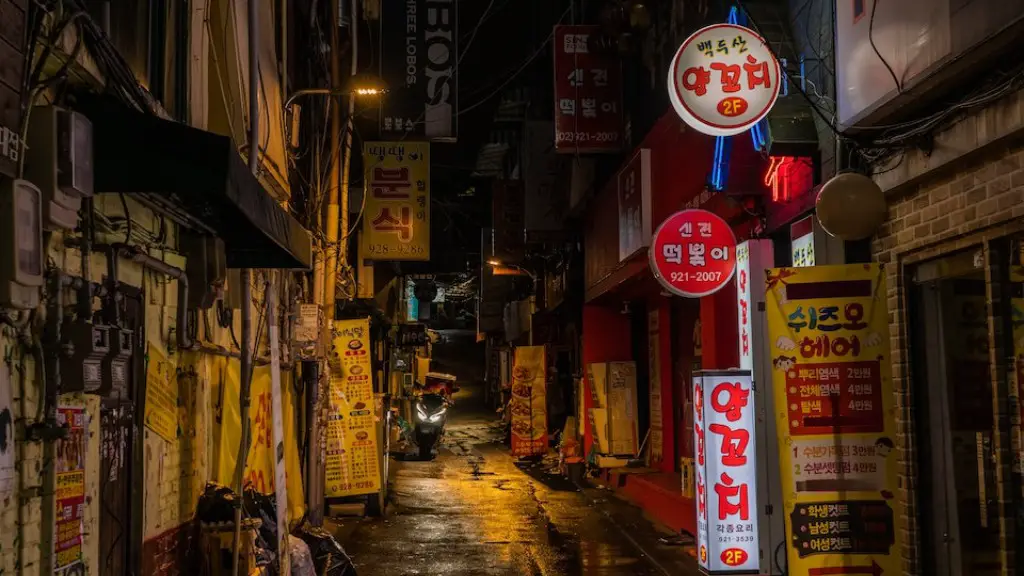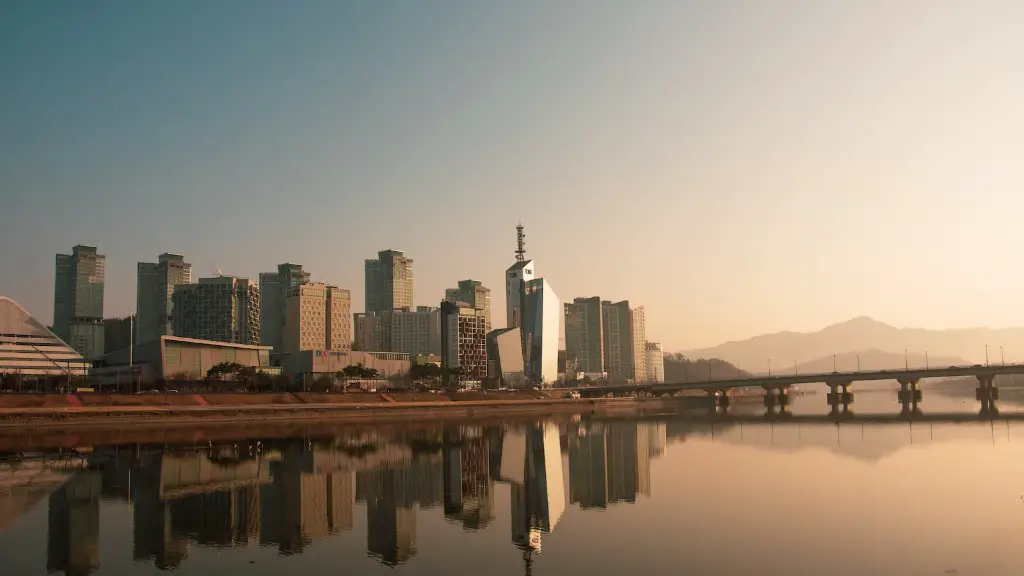North Korea is a dictatorship that has been the source of much controversy since its establishment in 1948. Located on the Korean peninsula, it shares borders with China, South Korea, and the Yellow Sea. North Korea has been the subject of various sanctions imposed by the United Nations, including a complete embargo on luxury goods and a ban on exports of nuclear and military technology. These sanctions have done little to deter North Korea from continuing its oppressive regime, as its leaders continue to put their citizens in constant jeopardy.
The people of North Korea are subject to what many describe as inhumane human rights violations. Freedom of expression and religious belief is severely restricted; North Korea has been known to imprison citizens for making seemingly innocuous remarks about the country’s leadership. The media is tightly controlled, with only state-run news sources propagating the government’s agenda. Additionally, the people of North Korea are subject to mass surveillance and the government’s macabre public executions and labor camps.
North Korea has also committed undeniably aggressive acts against its southern neighbor, South Korea. In 2010, North Korea was blamed for the sinking of a South Korean warship as well as the shelling of a South Korean island. The unease caused by these acts has persisted, as North Korea continues to repeat threats directed at South Korea, the United States, and its allies. It has also conducted regular missile tests, further exacerbating tensions.
From the perspective of international relations, the global condemnation of North Korea is justified. North Korea’s disregard of the sanctions imposed by the United Nations and its hard-line stance on relations between the North and South Koreas make it difficult for the international community to engage North Korea constructively. But North Korea continues to present a challenge to peace in East Asia, making it a source of enduring tension and concern in the region.
North Korea is a nation that has been operating largely outside the rules of the international community, and is widely perceived as a rogue state due to its refusal to participate in the international order. As a result of its actions, North Korea has earned the condemnation of the world; the country has become a pariah that is seen as a synonym for repression and authoritarianism.
Beyond this, North Korea has also become a source of great fear and concern in the West. It has been widely reported that North Korea is attempting to build nuclear weapons, though the evidence of this is debateable. Nonetheless, it is widely believed that North Korea is ill-equipped to responsibly handle a nuclear weapon, and thus the threat of such a weapon falling into the wrong hands is cause for alarm among some Western states.
It is clear that the world’s general dislike of North Korea stems from a number of legitimate grievances. North Korea continues to flout the rules of international relations, remaining isolated and often hostile towards its neighbours and other countries. Meanwhile, its human rights record is abysmal, and its nuclear ambitions make it an international worry. The fact that North Korea has been able to withstand the pressures placed upon it and remain an independent nation is a testament to its resilience, though it is unlikely that North Korea will garner any genuine support from the international community any time soon.
Collective Security
The possibility of North Korea becoming a nuclear state presents a major threat to collective security in East Asia. A nuclear armed North Korea would be an incredibly destabilizing factor in the region, and may result in a full-scale regional arms race as neighbouring countries endeavour to acquire their own nuclear arsenal. The United Nations has made clear that it is opposed to the proliferation of nuclear weapons, and the threat of a nuclear North Korea has only reinforced the UN’s stance.
The security of East Asia is further threatened by North Korea’s mercurial relationship with South Korea. Despite their difficult history, the two Koreas are technically still at war; this makes the prospect of peace between them even more remote. North Korea continues to make unsubstantiated threats against South Korea and the west, particularly in the wake of its missile tests. These impulsive outbursts only contribute to the ongoing tension between North and South Korea.
Furthermore, North Korea has become known for its defiant stance toward the United Nations and its refusal to reach an accommodations with its neighbours. North Korea has ignored international sanctions targeting its nuclear program, and its refusal to work in partnership with other countries has only intensified the mistrust many have of the country. In doing so, North Korea has become a significant source of instability in East Asia, which presents a serious risk to international peace and security.
Aid
Despite the issues that surround North Korea, many are still pushing for aid and support to be sent to the country to alleviate poverty and suffering. The lack of resources in North Korea means that the majority of the population is living in dire circumstances; in 2020, the United Nations reported that North Korea was facing a severe food crisis and that 10.9 million people were in need of humanitarian assistance.
In light of this, several humanitarian organisations are attempting to provide relief to North Korea. Despite the reluctance of some countries to assist, aid shipments are regularly sent to North Korea in order to reduce the suffering of its citizens. This aid is often conducted through independent organisations and is not endorsed by the government, however it is still necessary to ensure that the population of North Korea is not completely neglected by the international community.
Furthermore, there are various campaigns that aim to promote human rights in North Korea, in the hopes that they will address the dire human rights situation in the country. International organisations such as Amnesty International and Human Rights Watch have both advocated for greater protections for North Korean citizens, though the lack of international interest in the country has unfortunately limited their effectiveness. Nonetheless, the North Korean government has a responsibility to respect and protect the human rights of its citizens, and the international community must continue to pressure them to do so.
Dialogue
Though it seems unlikely that the situation between North Korea and the West will improve in the near future, dialogue is still a viable option for improving relations between the two. The United Nations has declared its readiness to engage North Korea in constructive dialogue, provided that North Korea agrees to certain conditions. These include a complete halt to all nuclear and missile tests, as well as an indication that North Korea is willing to work towards denuclearisation.
Engaging with North Korea is no small task, and any improvement to the situation must come from the inside first. However, this does not mean that the international community should turn a blind eye to the plight of North Korean citizens. Constructive dialogue can allow for the international community to express its concerns over the situation in North Korea, and also provide a platform for the country to voice its own concerns and grievances.
True progress must ultimately come from within North Korea, and this is best achieved through the creation of an open dialogue between the north and the south. A partnership between North and South Korea could potentially lead to lasting peace in the region; however, this can only be achieved if North Korea addresses its international obligations and shows a willingness to work with its neighbours.
Solutions
In order for North Korea to make progress and achieve lasting stability, a number of changes must occur. It must comply with international norms and its own obligations, adhere to international sanctions, cease its aggressive posturing, and violate human rights. These changes must come from the inside; while international pressure can help to cause significant changes internally, the North Korean citizenry must have a desire to improve the situation in the country.
It is clear that the situation in North Korea is distressing, yet it remains possible for the country to turn a new page and become a model of peace and stability. To do so, however, requires the commitment of its citizens and the dedication of the international community to support the necessary transformations. Ultimately, North Korea must be willing to learn from its history and embrace a reform-minded government that works in concert with the international community and takes meaningful steps toward improving the situation in North Korea.
Acknowledging Human Rights
One of the most important issues that need to be addressed in the context of North Korea is human rights. North Korea has a long history of abuse against its citizens, and many argue that serious and sustained pressure is necessary in order to bring about real change. A culture of silence and fear prevails in North Korea, making it difficult for a large portion of the populace to push for meaningful change. Those few who do speak out are often silenced, and the violations of their rights are rarely reported.
Though international pressure is necessary, meaningful change can only come from within North Korea. People will need to be empowered to push for reform and hold the government accountable; this requires a concerted effort to challenge the authoritarian regime that has persisted in North Korea for decades. Human rights advocates should be encouraged and supported, and their grievances must be heard in order for true progress to be achieved in the country.
Conclusion
North Korea is a country that has been shrouded in mystery for decades. It is a fractured nation, with a complex history that has resulted in a sense of mistrust among many at the international level. It is clear that North Korea has a number of issues to address, ranging from human rights violations to tight media control and its aggressive stance against South Korea and the West. In order to improve the situation, the North Korean citizenry will have to take the lead in pushing for reform; support from the international community and understanding of their grievances are also necessary. Only then can the path towards real progress be forged in North Korea, and a lasting peace achieved in the region.





